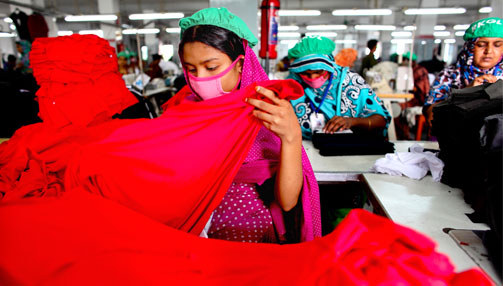Lack of essential public services must be tackled in order for women’s economic empowerment to be achieved. This is the message that IDS researchers will stress when they attend the 61st session of the Commission on the Status of Women in New York.

New IDS research on Balancing Paid and Unpaid Care Work, and ActionAid International’s work on gender-responsive public services, highlights how women’s choices surrounding their economic opportunities and participation in the labour market are severely constrained by a lack of public services or access to them.
In a world of work that is changing rapidly – with increasingly informal modes of work and advancements in digital technologies – empowering women economically and closing gender gaps at work are crucial to reducing gender inequalities and achieving the targets set under the 2030 Agenda for Sustainable Development.
This work is part of a broader focus on gender and reducing inequalities at IDS.
Links between women’s drudgery and lack of public services
The unequal burden of unpaid care work (which includes cooking, cleaning, caring for family members, fetching water and fuel, etc.) combined with a lack of essential public services (water, electricity and roads) means that women spend large amounts of time and energy on tasks such as collecting water, processing grains to make flour, collecting firewood, travelling to work, travelling to collect raw materials or sell finished products from the market. This then translates into drudgery for women. The research, from six countries across Africa and South Asia, illustrates the positive correlation between women’s burdens and lack of public services – which needs to be tackled in order to generate a ‘double boon’: paid work that both empowers women and provides more support for unpaid care work responsibilities.
What does Women’s Economic Empowerment mean?
Women’s Economic Empowerment (WEE) needs to be understood as improving women’s access to economic resources and income through the enhancement of decent economic opportunities and participation, as well as increasing women’s agency and control over household resources and decision making. It is as much about labour force participation as it is about choice. A broader notion of economic empowerment comprises both the market economy where women participate in the labour market, and the care economy which sustains and nurtures the market economy.
Women’s Economic Empowerment is not simply about labour force participation, but also about the choice to work, the choice of sector, location and working hours. Unpaid care work responsibilities combined with lack of public services has a major impact on the type, location and nature of paid work that women and girls can undertake. This equates to considerable discrimination in the labour market, for example, women are more likely to stay at home rather than work in the paid economy because undertaking paid work close to home allows women to mind their children, cook meals and care for elderly relatives, without incurring additional time and financial costs.
IDS at the Commission on the Status of Women 2017
The 61st session of the Commission on the Status of Women will take place at the United Nations headquarters in New York from 13 to 24 March 2017, attended by state representatives and advocates for gender equality from across the world. The priority theme for this year’s event is women’s economic empowerment in the changing world of work.
Our NGO CSW61 Forum Parallel event will take place on 13 March at 18.15 EST, UN Church Center. The event ‘Transforming “work”: Linking Care, Public Services and Women’s Economic Empowerment’ will turn a lens on public service provision and explore how policies and programmes promoting women’s economic empowerment may engender a positive balance between women’s paid work and unpaid care work responsibilities.
The event will bring together young women, researchers, labour rights, SRHR and feminist organisations and government representatives to talk about care dynamics, implications for women’s economic participation and gender-responsive public services as a pathway towards women’s economic rights. The panel will share evidence and lessons learned from Sub Saharan Africa and South Asia, acknowledging the dual role that many women play trying to balance being caregivers and workers.
Speakers include:
- Mmasediba Dorah Tsatsi, young feminist activist, Afrika Tikkun
- Preethi Sundaram, International Planned Parenthood Federation
- Elena Zambelli, Institute of Development Studies
- Moderator: Wangari Kinoti, Action Aid
We will also be at the NGO CSW61 Forum Parallel event on 17 March at 16.30 organised by Canada’s International Development Research Centre (IDRC) in connection with their Programme Growth and Equal Opportunities for Women (GrOW).
If you are going to CSW61 please join us. If not you can follow the debate via #CSW61 #unpaidcare and @GrOW4Women on Twitter or email us your comments and thoughts.